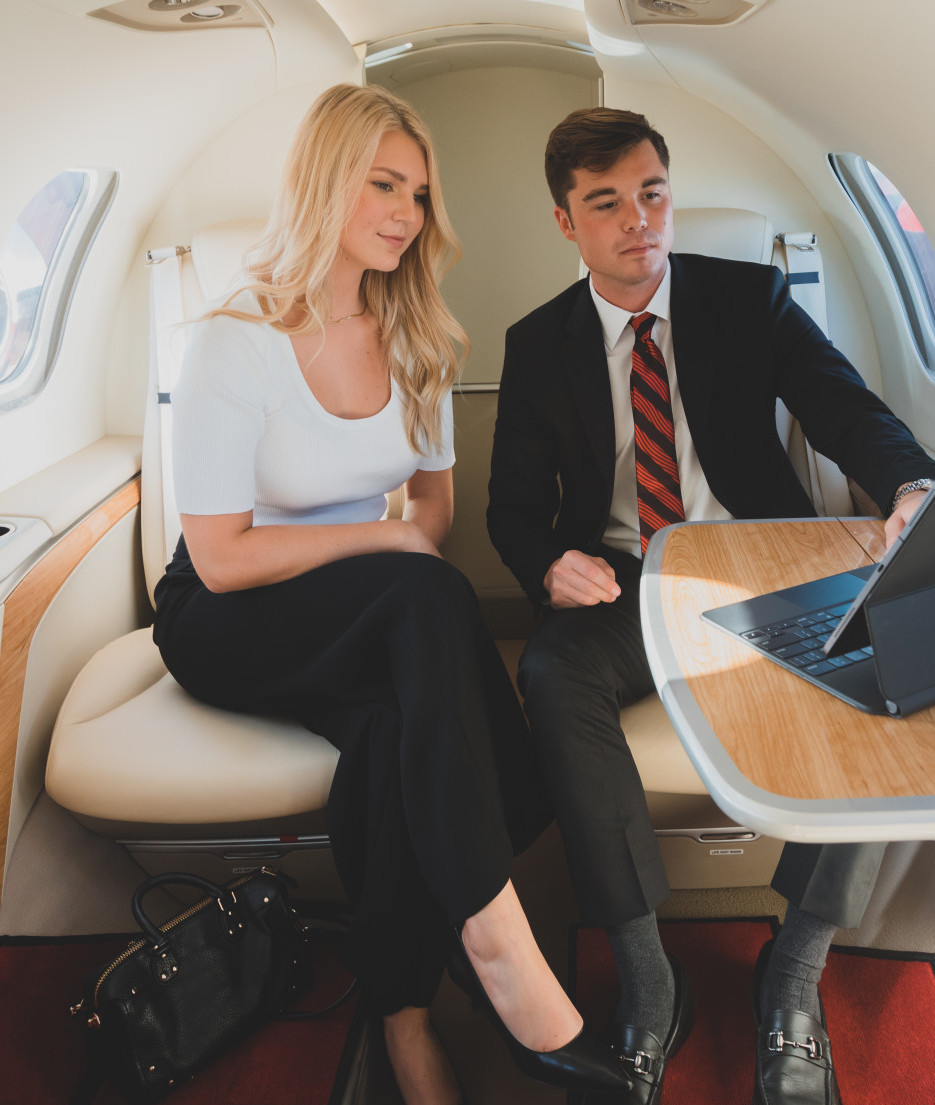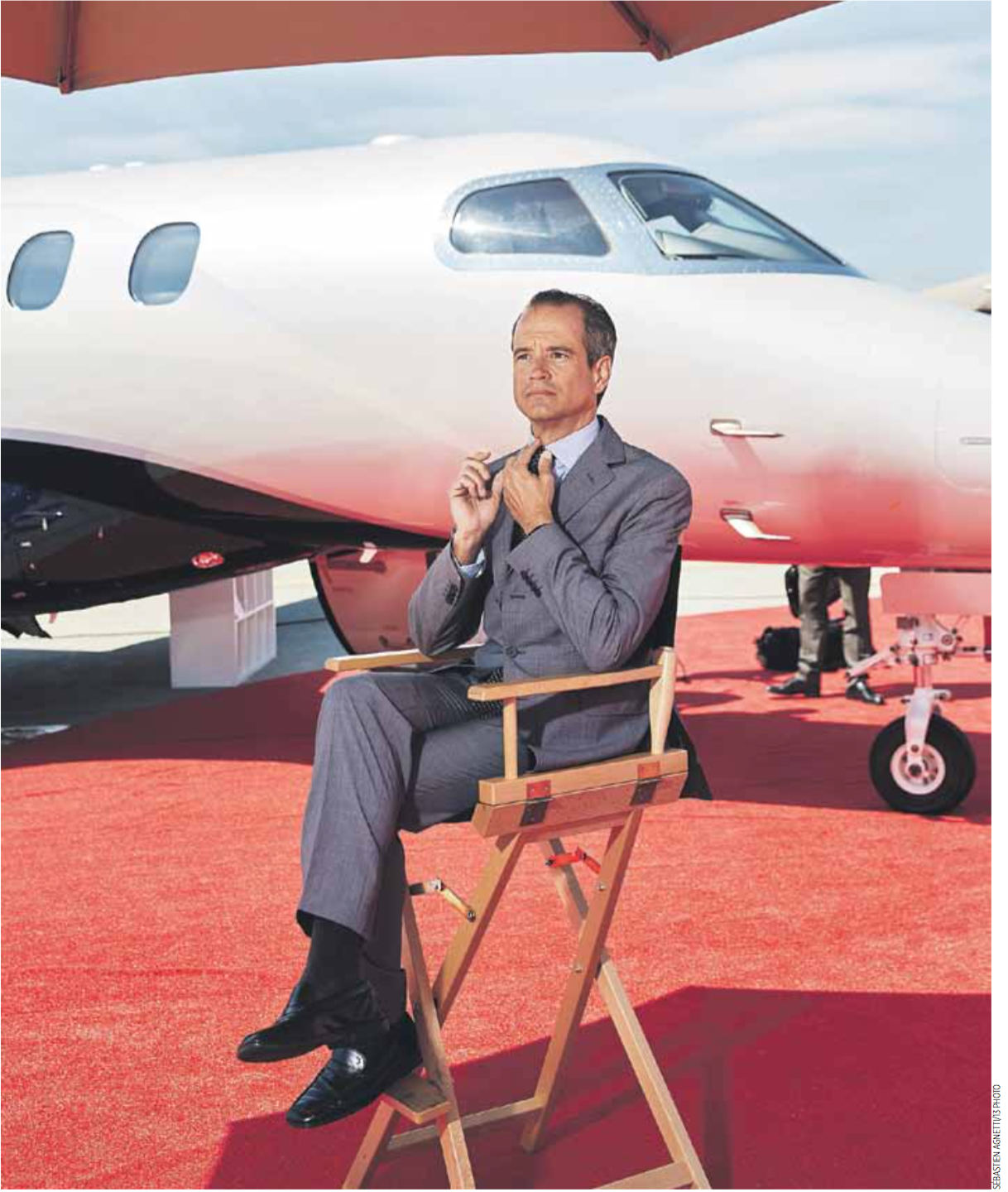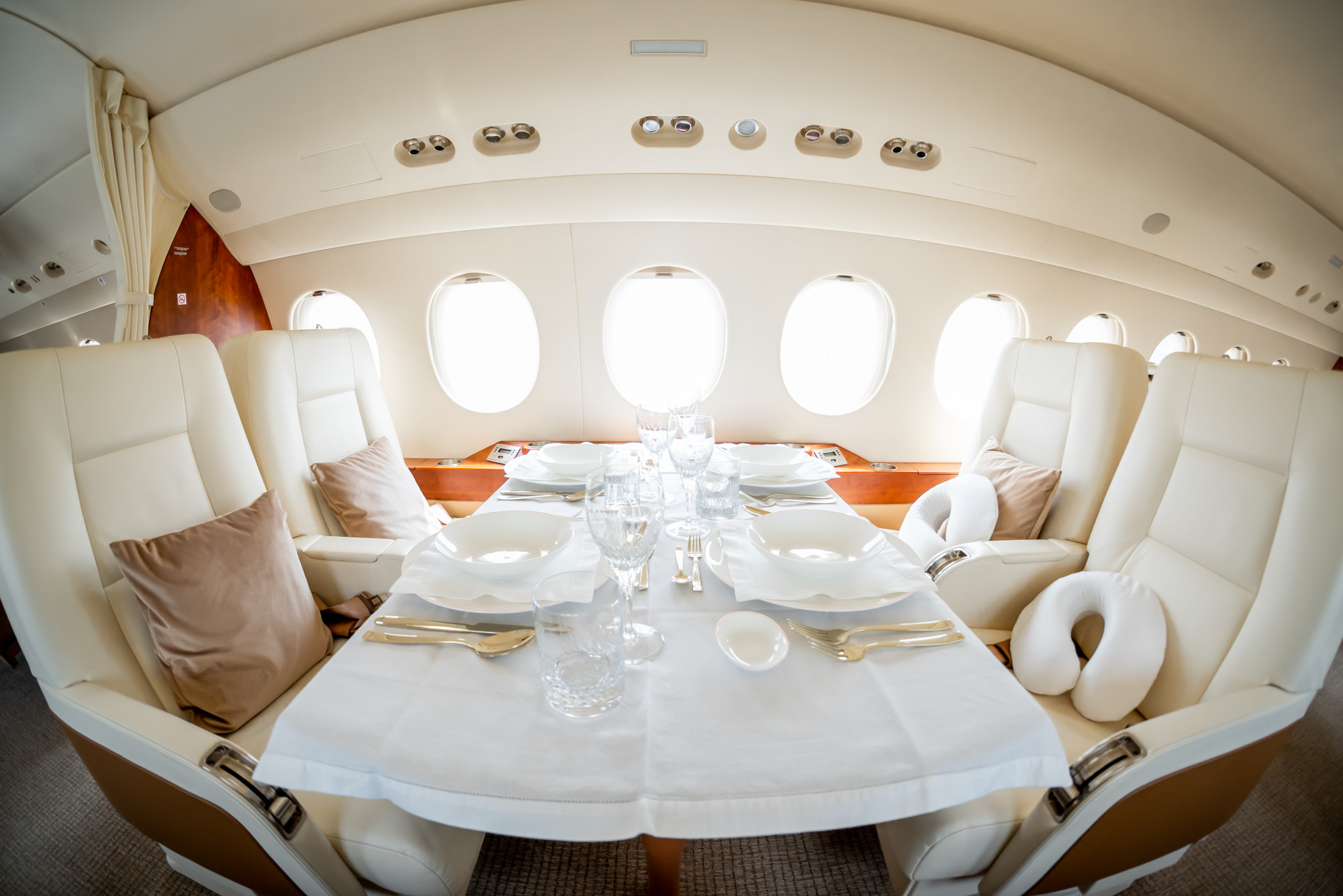Flying high
In a year when almost everything is up in the air, private jets remain big business. We speak to leading names in the industry about the sharp rise in demand caused by Covid-19 and how innovation is helping to create a more sustainable future
Words: Alice Cairns

It’s fair to say that the world of travel has experienced some turbulence in the last year. Ever since the outbreak of the pandemic, flights have been cancelled, mandatory quarantines have been brought into force, and many of us have learned to make do with the humble staycation.
But while commercial airlines continue to suffer, business has been booming for private jet operators. Once the exclusive preserve of ultra-wealthy high-flyers, a whole new audience is now opting to pay a premium for privacy, flexibility and personal space.
“With commercial airline schedules disrupted to the point of near extinction, private aviation has become more attractive than ever to first-time users” says Sean O’Leary, sales director at Mayfair-based brokerage, Jetcraft. “It offers flexibility and control, while reducing passenger touchpoints and limiting contact with others at the airport.”
It’s true that going private has some compelling health benefits for a newly hygiene-aware public. According to a recent study by McKinsey & Company, passengers are exposed to 700 touchpoints for potential infection while travelling on a commercial plane. When flying privately, that number is slashed to 20. Combine this with the flexibility, convenience and luxury of private aviation, and it’s easy to understand why the industry is booming. In fact, according to Jetcraft, the number of first-time buyers has doubled – causing demand for private jets to soar to such heights that there is now a global shortage of pre-owned planes.
But what about those unfortunates who can’t afford their own private plane? There are plenty of alternative ways to access private aviation – whether that’s through chartering, part-ownership, or one-off private jet experiences.
Choosing one of these flexible options will give you occasional access to the luxury of private travel, without the need to pay the hefty overheads associated with owning your own aircraft.
“Ever since the pandemic, people have been choosing to fly privately,” explains Matteo Atti of global private aviation company VisaJet.

“It’s a sticky product, in the sense that once you’ve experienced private aviation, it’s hard to go back.”
As a result, travellers who would once have made frequent trips in First Class are now opting for a private jet experience once or twice a year.
“People would rather take fewer flights per year, but make them longer, more meaningful and more luxurious,” Matteo says.
Christian Clerc, president of global operations at Four Seasons, agrees. The Four Seasons Private Jet service has experienced “record sell-outs and extensive waitlists” as travellers plan “longer, once-in-a-lifetime journeys to desirable destinations on their bucket lists.” And in the wake of the pandemic, Andy Christie, group private jets director at Air Charter Service, has also seen a rise in “ultra-private package holidays”, promising total privacy from the plane to the beach. “This has led to a sharp increase in enquiries from luxury travel agents, customising their tours and packages with private flying,”he says.
“Offsetting more than 100 per cent of carbon from private aviation flights is an option taken up by more and more customers” Andy Christie, Air Charter Service
And really, who could fail to be intoxicated by the thought of travelling by private jet? From onboard cinemas to mid-air fine dining, it’s hard to resist the lure of the high life. But all that luxury comes with a catch: in a world that’s increasingly alert to the climate crisis, you’d be forgiven for wondering whether flying private can ever be a truly sustainable choice.
“Private aviation is obviously not the first industry that comes to mind when you think of sustainability!” says Eymeric Segard, CEO of private jet charter service Luna Jets.
“But be assured that there is enormous progress happening in the industry. In the first place, aircraft manufacturers are trying to design planes to be as light and as aerodynamic as possible to reduce fuel consumption. Then on the traffic control side, we’re working hard to streamline routes to reduce flight time. Finally, when you charter a private plane, you have the flexibility to choose a smaller or larger craft to suit the number of passengers. Commercial airlines may have to fly large aircrafts even if they’re half-empty – private jets can make environmentally-friendly accommodations.”

Next, there’s Sustainable Aviation Fuel (SAF), a clean alternative to traditional fuel which is produced from waste oils and which promises to reduce carbon emissions by up to 80 per cent. From this month, SAF will be available at Farnborough Airport, a private airport near London. Business development manager, Richard Wittels, says the use of this sustainable fuel is “a unique opportunity for the world of aviation to grasp the sustainability agenda”, and an enormous step forward for “the decarbonisation of the wider industry.”
Finally, electric planes are on our horizon, promising to deliver quieter travel and cleaner skies in the near future. Fractional ownership brand JetClub has announced that it will be adding the ‘Bye Aerospace electric eFlyer 800’ to its fleet – an electric plane which can carry seven passengers and two pilots, scheduled to be in operation from 2025.
“Protecting the environment is absolutely a priority for us,” says Vishal Hiremath, co-founder and CEO of JetClub.
“Jet engines will still be in the air for many years – that’s inevitable when it comes to long-haul flights. But the technology for electric planes that are capable of flying for 400 or 500 miles is very much there. That will be a real leap forward in terms of making the industry more sustainable.”
While we wait for these exciting new technologies to achieve certification, Andy Christie of Air Charter Service emphasises the importance of carbon offsetting.
“Sustainable travel is something the jet industry takes very seriously. Carbon credit systems are a way of funding investment in green projects, which would otherwise not receive the investment they need. As a result, offsetting more than 100 per cent of carbon from private aviation flights is an option that is taken up by more and more customers, a way of ensuring that our impact on the planet is as low as possible.”

